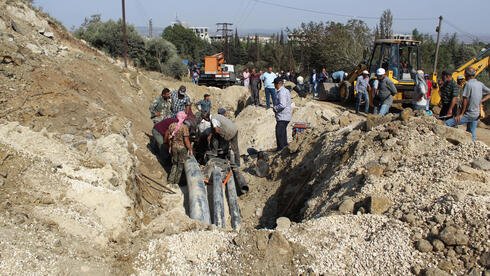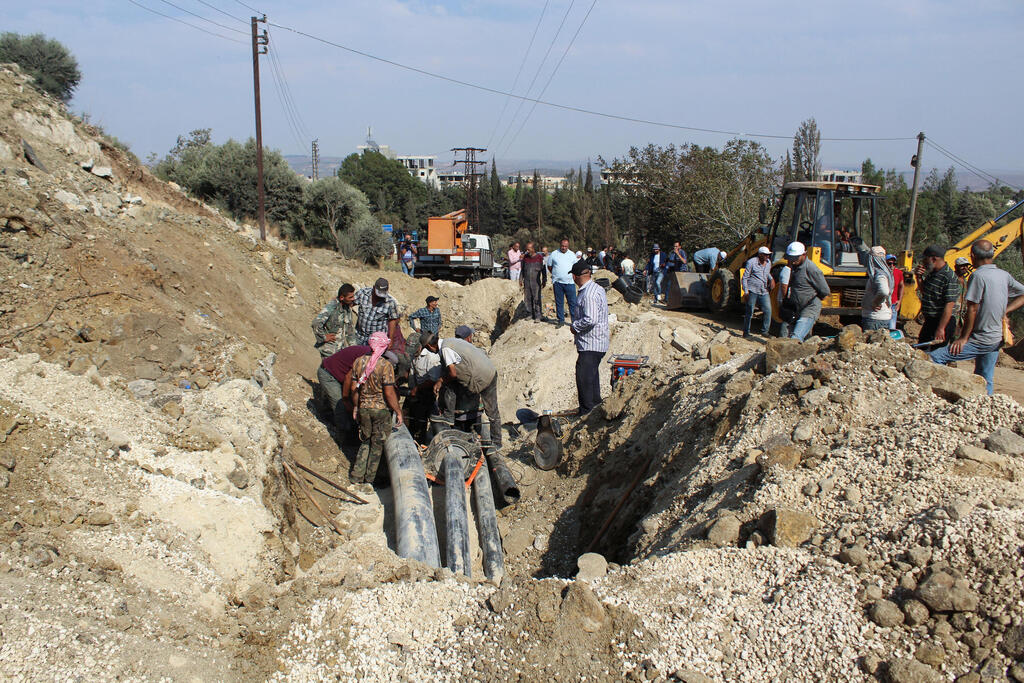Commentary: In September, IDF commandos raided a Syrian missile facility, destroying planetary mixers vital for producing solid rocket fuel for Hezbollah and Syria; airstrikes forced guards into hiding as troops rappelled in to strike
The factory was established by the Syrian Scientific Studies and Research Center (CERS) using Iranian expertise and manufacturing equipment. Among its advanced tools were planetary mixers, which precisely combine materials into a homogeneous compound for solid rocket fuel production. The facility was constructed underground, carved deep into a mountainside, in a region housing other military factories previously targeted by the Israeli Air Force.
Israeli strikes in Hama, Syria
The operation was based on precise intelligence gathered before and during the war. The decision to strike was made only after confirming the facility was operational and equipped. The objective was not to destroy the entire plant but to target the planetary mixers, critical for producing solid rocket fuel.
Solid rocket fuel enables missiles to be launched without the need for on-site fueling, a process requiring them to be removed from underground shelters and raised upright for nearly an hour—making them easily detectable by satellites and other intelligence tools. Solid fuel also significantly enhances a missile’s range and precision.
The raid was conducted at night when security and activity at the facility were minimal. Prior to the operation, several waves of Israeli Air Force bombings near the facility forced the guards to retreat underground.
Under the cover of these strikes, several IAF Sikorsky Sea Stallion and Black Hawk helicopters approached the factory’s entrance. Reports suggest there was no suitable landing zone on the mountainside, so the first Shaldag unit team rappelled directly near the gate.
The entry team encountered little resistance, securing the factory’s entrance and marking the path to the rooms housing the critical planetary mixers, guided by detailed plans of the facility.
Meanwhile, the rest of the unit landed several hundred meters away, carrying explosives to the target site. Throughout the operation, IAF planes continued providing covering fire, keeping the Syrian army forces pinned down.
The entire raid lasted approximately 20 minutes. As the commandos returned to the helicopters and took off, the explosives detonated, destroying the mixers and effectively halting the factory’s production capabilities. These mixers, available only to global powers, are rare. Following the Israeli airstrike on Iran on October 26, few remain within the Shiite axis, except for one or two held by the Houthis in Yemen.
The October strikes, part of Operation Days of Repentance, were Israel’s first publicly acknowledged attacks on Iran, launched in response to ballistic missile barrages fired at Israel from Iran earlier in the month. Dozens of Israeli fighter jets significantly degraded Iran’s air defense systems and ballistic missile production capabilities.
According to the report, each mixer is valued at a minimum of $2 million. Sources familiar with Iran’s missile industry estimate it will take at least two years to restore the factory, significantly disrupting Iran’s missile production capabilities.



